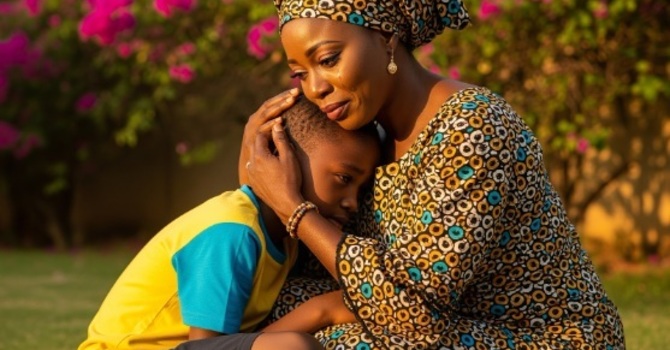
Most of us don’t want to think about our parents dying. It’s uncomfortable and it can feel like opening the door to something we’d rather pretend doesn’t exist. But the truth is — death isn’t a matter of if. It’s a matter of when. And waiting until the crisis hits is one of the hardest ways to show love to the people who raised you.
If you're a millennial in Toronto or the GTA trying to navigate this without much guidance — you're not alone. I support people just like you in my psychotherapy practice.
We Don’t Talk About Death Because We Were Never Taught How
We live in a death-phobic culture. In Western society — including here in Ontario — death has been sanitized, hidden, and made taboo. It’s treated as morbid, scary, or even rude to bring up. You probably didn’t grow up talking about it — so it makes sense if it still feels weird or wrong to start now.
But here’s the thing: avoiding death talk doesn’t stop death from happening. It just makes it messier and more painful when it does.
Having the Conversation Before the Crisis Is a Gift
End-of-life planning isn't just about logistics — it's an act of emotional care. A UK study on the ReSPECT process (Recommended Summary Plan for Emergency Care and Treatment) found that people who had early conversations about their wishes didn’t just feel more prepared — they saw the process as a way of caring for themselves and their families.
“Patients valued the opportunity to express their wishes and conceptualised ReSPECT as a process of caring for themselves and for their family members’ emotional wellbeing” (Finucane et al., 2024).
On the flip side, participants who weren’t properly included in these discussions reported confusion, anxiety, and a lasting sense of emotional burden.
Love Looks Like Going First
In many families — especially immigrant families in Toronto and across Ontario — talking about death can feel like breaking a rule. Some parents may say, “I’ll be dead anyway — it’s your problem.” But silence isn't neutral. It often leaves adult children to carry the emotional and logistical burden alone.
Yes, it’s a role reversal. You’re the one leading now. But this is part of becoming the adult in the room — and it doesn’t mean you’re being controlling or insensitive. It means you’re stepping up to protect your parents’ dignity and make sure their care reflects their values.
Families Often Regret Not Talking More
A qualitative study of end-of-life communication found that families frequently experienced lingering regrets when meaningful conversations didn’t happen in time. They wanted more space to share memories, ask difficult questions, and feel emotionally connected — but didn’t know how to begin or felt it wasn’t appropriate to speak openly.
“Families regretted the lack of meaningful communication with the patients, indicating a need for support to facilitate effective end-of-life communication” (Sasaki et al., 2023).
When we don’t talk, we lose the chance to connect — not just to plan. These conversations aren’t just medical or practical. They are deeply relational.
If You Want to Love Them Well, Start Now
This conversation doesn’t have to be perfect. You don’t need a checklist. You just need to open the door.
-
Ask if they’ve ever thought about what kind of care they’d want.
-
Share a story that got you thinking about your own wishes.
-
Tell them it’s hard for you too — but you don’t want to be left guessing.
The hardest part is starting. But when you do, you give your whole family the chance to face the future with more peace, less panic, and fewer regrets.
Need Help Starting the Conversation?
If you’re a millennial in Downtown Toronto or anywhere in Ontario feeling overwhelmed by aging parents, end-of-life anxiety, or how to navigate taboo topics like death in your family — I can help.
I offer virtual and in-person psychotherapy for adult children navigating care, grief, and communication challenges.
Book a consultation to start untangling it all, with support.
References
Finucane, A. M., Dempster, M., Cunniffe, C., Carduff, E., Dow, J., McGlinchey, T., & Spiller, J. A. (2024). Patient and family experiences of the ReSPECT process: A qualitative interview study. Palliative Medicine, 38(1), 68–78. https://www.ncbi.nlm.nih.gov/pmc/articles/PMC11022317/
Sasaki, K., Maeno, T., Matsushima, M., Nishimura, T., Komiyama, T., Hinohara, Y., & Maeno, T. (2023). A qualitative study on end-of-life communication with family caregivers in palliative care: Perspectives of bereaved family members. BMC Palliative Care, 22, Article 52. https://www.ncbi.nlm.nih.gov/pmc/articles/PMC10111311/
Monica Lau
Contact Me



